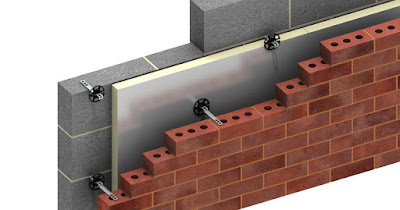Over the years, many different materials have been used to make brick ties. In large number of instances, the how old a properly is and its location will dictate the construction of its brick ties. Some common types are:
1 – Metal
At present, stainless steel is widely used
but mild steel, copper, wrought iron and cast iron have traditionally been
used. Wrought iron and cast iron brick ties are usually quite heavy, and in case of corrosion it should be
removed in most cases. Copper brick ties
are for the most part quite rare, but in fact they are very strong and durable.
2 – Brick or
Terracotta
It is rarely and usually isolated in certain
regions, says an online store that deals in brick ties. They also
have several drawbacks as they create cold thermal bridges to the interior
walls, allowing moisture and cold to pass through them.
3 – Stone or
Slate
Once more, this is not common and has
numerous drawbacks, including an inclination to breakage and cracking in the
event of movement. Nevertheless, they are fairly corrosion-resistant and, if
owned, where there is no sign of movement, they should last a long time. Again,
however, this type of tie can transfer moisture and cold to the inner skin.
In most maximum properties dating back to the
1930s, mild steel is the element preferred for the manufacture of brick ties,
and under normal circumstances, the mild steel used is left as it was
(uncoated) or coated with a bitumen type material. As technology has emerged
and recognition of rust and corrosion has progressed, galvanizing has become
the preferred coating, providing the joints with an outer layer that is resistant
to water and moisture to extend their service life.
How to
Replace and Install Cavity Wall Ties
In the event that you notice visual cracks
due to corrosion caused by brick ties,
it may be beyond DIY. You are ought to seek help from a qualified civil
engineer to assess and suggest the following steps. In this situation, corroded
brick ties must be
removed. This will be a highly qualified work that must be completed by a
person with the abilities and experience essential to repair degraded brick ties so as not to cause
additional architectural harm to property.

No comments:
Post a Comment